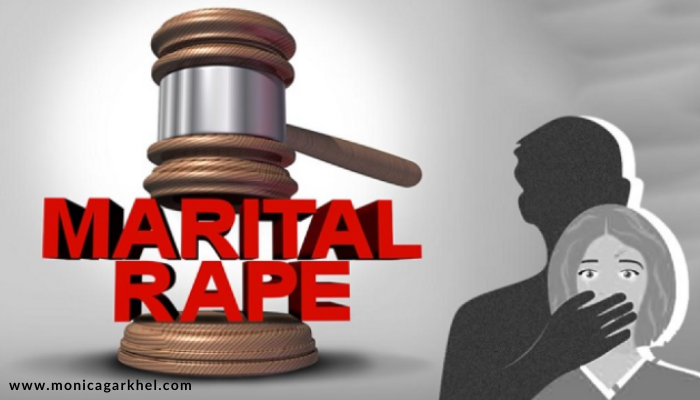Marital rape is a forceful or non-consensual act executed by the husband. This contentious issue is quite prevalent in India. Although marital rape is globally recognised as a violent form, it remains non-criminalised in the Indian region, which makes it a much-debated and complex issue.
Women often face this grim reality and are left unspoken since it silently remains in households. Lacking legal recognition has disheartened many individuals on this silent yet most complex issue in marital relationships. Therefore, understanding the complexities, specifically in India, is crucial since it is among the regions where this complex issue is not criminalised.
This guide highlights the complexities of marital rape while exploring the societal attitudes, attitudes, psychological implications, and urgency of developing legal reforms in India. Read this review and understand the complexities of marital rape in India, explained by Monica Garkhel, and know the justice and legal reforms required to recognise and address the experiences of marital rape victims.
Understanding Marital Rape
The domestic sexual abuse and violence when a spouse forcefully and non-consensually performs intercourse with a wife is a marital rape. It is experienced by many women globally and can happen in the form of intimidation or violence. It can also occur when the wife is unable to provide consensus. This crime or forceful act is domestic violence that remains unreported or least reported due to the lack of a legal system considering it a crime due to social stigma and norms.
This unspoken crime diminishes the marital relationship’s foundation due to consent and trust violation by the spouse. The experiences of the victim affect their physical and psychological well-being, shattering their marriage and family life.
Laws And Limitations Of Marital Rape
The Indian legal framework exempts non-consensual intercourse by a husband with his wife, provided her age is more than fifteen years. Section 375 of the Indian Penal Code (IPC) defines rape, yet it does not include marital rape or non-consensual intercourse by a spouse as a crime or a legal action against the happening.
This exemption in the Indian legal framework relies on old ideas and the concept of irrevocably consenting to have intercourse with a wife, and the husband has a complete right to his spouse to fulfill his sexual desires whenever needed, irrespective of being forced or without consent. This lack in the Indian legal system refrains women from having protection from sexual abuse and violence in their marital relationships.
Section 375 Exception 2 part was ruled unconstitutional by the Supreme Court in 2017 in the Independent Thought v. Union of India that excused marital rape of minor spouses between the age group of 15 and 18. Although sexual abuse is recognised as a domestic violence form in the 2005 Domestic Violence Act, in section 375, the marital rape exception is provided by the Indian Penal Code (IPC).
This glitch in the Indian legal framework falls against the non-discrimination and equality principles of the constitution and deprives marital rape victims to get justice.
Understanding The Complexities Of Marital Rape In India
The marital rape subject is complicated due to the complexities in the Indian legal framework. It encompasses legal challenges that firmly set societal values and concerns regarding possible infringements of the legal provisions. One must not let justice for the victim be denied since it is critical to confront the inappropriate application of legislation.
Causes Of Failure: Criminalising Marital Rape In India
Traditional values and sociocultural conventions have conditioned and obligated Indian women to satisfy the sexual desires of their spouses constantly, whether they wish to or not. Their widely held belief indicates marriage is consent to any occurrences in their marital lives, including fulfilling their spouse’s sexual desires. The involvement and pressurisation of families and society also bound women to carry the tradition of expanding their families without knowing their needs.
The Need For Legal Reforms
Although it is challenging to criminalise marital rape under the Indian legal system, it is crucial to emphasise the need for legal reforms. The marital rape laws and legislation would validate the experiences faced by the victims and punish the abusers. The legal reforms would deliver a message to Indian society that sexual violence would be unacceptable irrespective of marital status and the relationship between the sexual abusers and the victims.
Equality and justice are required to address the complexities of marital rape and the experiences and trauma faced by the victims. It can begin by speaking out for the silenced issue and determining the demand for legal reforms to provide justice to marital rape victims.
Legal Implications
The legal implications are significantly demanded since the Indian Penal Code’s section 375 clarifies that sexual intercourse with a spouse is not considered rape if the wife is more than 15 years. The Indian laws do not expressly state that it believes in legal action for marital rape.
It is necessary to create a refined and balanced system that recognises and acknowledges women’s dignity, promotes legal system and justice, and gender equality.
Awareness And Education
Social awareness and education are crucial for getting justice for the victims of marital rape and combatting it. Emphasizing consent for sexual desires and respect and educating people about sex has the potential to challenge traditional views, conventional beliefs, and patriarchal values that often validate marital rape without consent and justify it.
Campaigns and other forms to effectively communicate with victims of marital rape could encourage them to seek help and break their silence. The marital rape victims should be guided for their available support services and legal rights for their marital relationships.
Conclusion
The need for legal reforms, education, awareness, and justice for marital rape victims is crucial to eliminate the conventional beliefs. Since the Indian legal system does not consider marital rape with a spouse over 15 years as a crime, women are highly susceptible to marital rape and sexual abuse after their marriage.
Therefore, the argument to understand the complexities of marital rape is not only about educating and spreading awareness or restricting legal reforms among rape victims, but it is also about recognizing and addressing their experiences.
Voicing against marital rape is crucial to let individuals, lawmakers, and society as a whole understand and encourage them to speak out against abusers of marital rape and plea against the fight for justice. Reach the divorce lawyer in Jaipur Monica Garkhel today to get legal consultation and guidance to be vocal about marital rape and sexual abuse.


